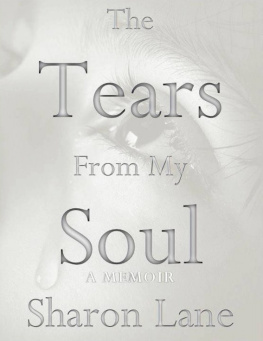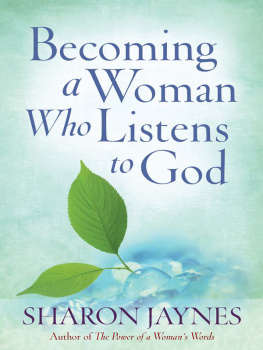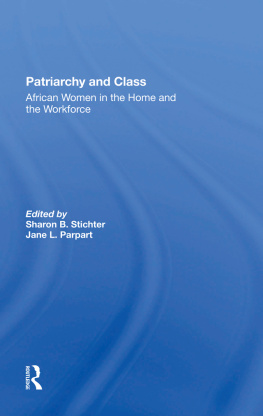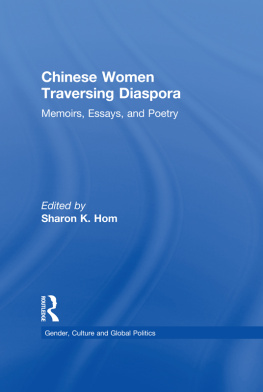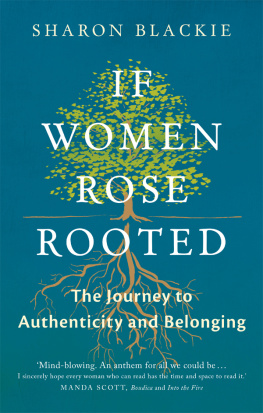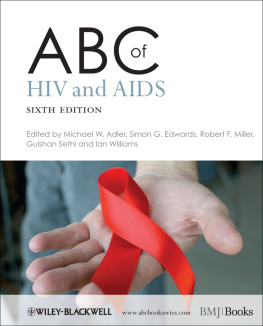First published 1998 by Garland Publishing, Inc.
This edition first published in 2021 by Routledge
605 Third Avenue, New York, NY 10017
and by Routledge
2 Park Square, Milton Park, Abingdon, Oxon OX14 4RN
Routledge is an imprint of the Taylor & Francis Group, an informa business
Copyright 1998 Sharon E. Walker
All rights reserved. No part of this book may be reprinted or reproduced or utilised in any form or by any electronic, mechanical, or other means, now known or hereafter invented, including photocopying and recording, or in any information storage or retrieval system, without permission in writing from the publishers.
Notice:
Product or corporate names may be trademarks or registered trademarks, and are used only for identification and explanation without intent to infringe.
Publishers Note
The publisher has gone to great lengths to ensure the quality of this reprint but points out that some imperfections in the original copies may be apparent.
Disclaimer
The publisher has made every effort to trace copyright holders and welcomes correspondence from those they have been unable to contact.
Library of Congress Cataloging-in-Publication Data
Walker, Sharon E., 1949
Women with AIDS and their children / Sharon E. Walker.
p.cm. (Children of poverty)
Includes bibliographical references and index.
ISBN 0-8153-3008-1 (alk. paper)
1. AIDS (Disease)Social aspectsUnited States. 2. AIDS (Disease)United StatesPsychological aspects. 3. WomenDiseasesSocial aspectsUnited States. 4. WomenDiseasesUnited StatesPsychological aspects. 5. AIDS (Disease) in childrenUnited States. I. Title. II. Series.
RA644.A25W331997
362.1969792008209073dc21
97-31032
ISBN 13: 978-1-03-216631-5 (hbk)
ISBN 13: 978-1-03-216778-7 (pbk)
ISBN 13: 978-1-00-325012-8 (ebk)
This book is dedicated:
To the thirteen courageous women who shared their time, energy and passion so that other women and children with HIV/AIDS could be better understood and supported in their valiant struggle.
With love and appreciation to my best friend, Mick Walker, whose constant support and unfaltering faith have facilitated the navigation of my work. It would not be possible to explain all that he has done or the meaning it has had for me.
and
To Meagan and Kara
This book is about courageous women with AIDS who revealed their emotional pain and the concomitant struggles of living with HIV+, and their children. They describe their psychological reactions to the diagnosis itself and to the disease trajectory, and the way in which living with HIV has impacted their relationships with their children. Most of the women either had children with pediatric AIDS, were uncertain of their childs diagnosis at the time of the research, or had experienced the death of a child through vertical transmission. They eloquently describe their valiant attempts at caring for their children while coping with their own disease process. Although some of the participants had supportive families who were aware of their disease, some feared disclosure and thereby were prevented from obtaining the support that they so intensely needed.
In the last several years and in the time since the research for this book was conducted, new treatment for AIDS has been introduced that could change the possible course of the AIDS virus and therefore, the life span of trajectory of those living with it. The drugs, called protease inhibitors, appear to completely suppress the AIDS virus. These drugs block one step in the reproduction cycle of HIV and appear to slow its progression. When protease inhibitors are combined with other older drugs used to treat AIDS, the virus appears to stop reproducing. Although the use of these drugs represent a welcome and hopeful advance in the treatment of HI V+/AIDS, they do not represent a cure. HIV+/AIDS continues to be the leading cause of death among people ages 2544 and continues to be a leading cause of death in women and children. The drugs themselves are very costly and not universally available, involve strict adherence to medication regimes, and are not similarly effective in all people.
As the treatment possibilities for people with AIDS continues to develop, the numbers of women with AIDS continue to increase dramatically. Although these treatments could prolong the lives of women with AIDS, the treatments to not address the fundamental issues that most of these women confront on a daily basis. Most women with AIDS live in urban areas where poverty and crime are daily facts of life. If they cannot conceal the reality of their diagnosis, they routinely face stigma and disenfranchisement related to the virus itself and to the presumed methods of transmission. As reported, they constantly grapple with virus-related fear of disease progression and anxiety related to societys view of their culpability and contagion. If they reveal that they have HIV+, they are concerned about being seen as dirty, and about being shunned as a result. The societal stigma associated with AIDS has not been changed by any of the medical advances. The difficulties that women with AIDS incur as they navigate through their own disease process and that of their children who are similarly infected continue. Although the good news is that the medical advances can prolong lives, the bad news is that programs and services have not expanded to cope with increased needs as women and children live longer with the virus. Mothers with AIDS continue to contend with their own disease process and possibly that of their child. They continue to be confronted with the psychological sequelae that are associated with chronic and possibly terminal illness while they face similar issues with their seropositive children and/or as they depend on their healthy children for psychological and physical support. Although programs and services do exist that attempt to meet the needs of women and children, their content and availability need to be expanded in order to provide women with AIDS the care that they and their children need. It is essential that we address the psycho-social needs of women and children with AIDS in order to improve the quality of their lives and in order to prevent children without the virus from caring for family members for prolonged periods of time.
Health care providers who have preconceived views of women with AIDS as being uncaring and neglectful will find their comments to be elucidating. Although the women interviewed reported that they consistently cared for their children at their own expense, they also indicated that virus-related symptoms and stressors precluded them from providing the optimal care that they so wanted to sustain. It is essential to heed the words of the women as they describe the anguish that they feel, the difficulties that they face, and the lengths that they go to to care for their children. It is essential to pay attention to their cries for help as they describe the burden of living with chronic illness that is frequently concealed from potential sources of help. The voices of these women are telling us what is needed in terms of care and support and also provide implications for prevention.





